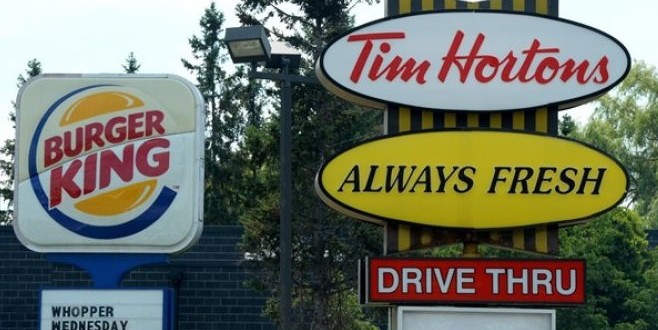Private equity-backed Burger King Worldwide Inc. and Canadian coffee chain Tim Hortons Inc. moved one step closer to becoming a joint $23 billion fast-food goliath on Tuesday with approval from Canada’s Competition Bureau.
“The bureau concluded that this transaction is unlikely to result in a substantial lessening or prevention of competition due to, among other things, the existence of a large number of competitors and the low barriers to entry in the fast food industry,” the federal government said in a statement.
A No Action Letter confirms that the bureau has reviewed a specific proposed transaction and concluded that it will not, at this time, challenge that proposed transaction before the Competition Tribunal under the mergers provisions of the Competition Act, the news release says.
But it’s not a done deal yet. The transaction is still subject to a review under the Industry Canada Act and antitrust approval in the U.S., along with Tim Hortons’ shareholder approval.
“We’re pleased to have achieved this milestone and continue to work through the regulatory process,” Scott Bonikowsky, Tim Hortons’ senior vice-president, corporate, public and government affairs, said in an email.
Under the Investment Canada Act, Ottawa reviews foreign investment and must decide whether the $11-billion US deal would provide a net benefit to the economy.
The merger likely won’t have a problem with the U.S. antitrust watchdog, said analyst Andy Brennan at IBISWorld in New York. “I can’t see any obvious reason why this takeover wouldn’t go ahead,” he said.
“Airlines and hotels have done much bigger mergers here recently without a problem from the justice department,” Brennan noted.
The fast food takeover deal was announced in August and would create the world’s third-largest quick-service restaurant company after McDonald’s and Yum Brands (owner of KFC, Pizza Hut and Taco Bell).
The planned combination of the two powerhouses is expected to be completed by the end of the year or early 2015. The companies have said that they would operate as stand-alone brands with 18,000 restaurants and a combined $22 billion in sales.
Tim Hortons dominates the Canadian coffee market, where it has more than 3,500 restaurants and 70 per cent of its sales. Burger King is the fourth-largest burger chain in Canada after McDonald’s, A&W and Wendy’s.
Agencies/Canadajournal
 Canada Journal – News of the World Articles and videos to bring you the biggest Canadian news stories from across the country every day
Canada Journal – News of the World Articles and videos to bring you the biggest Canadian news stories from across the country every day



